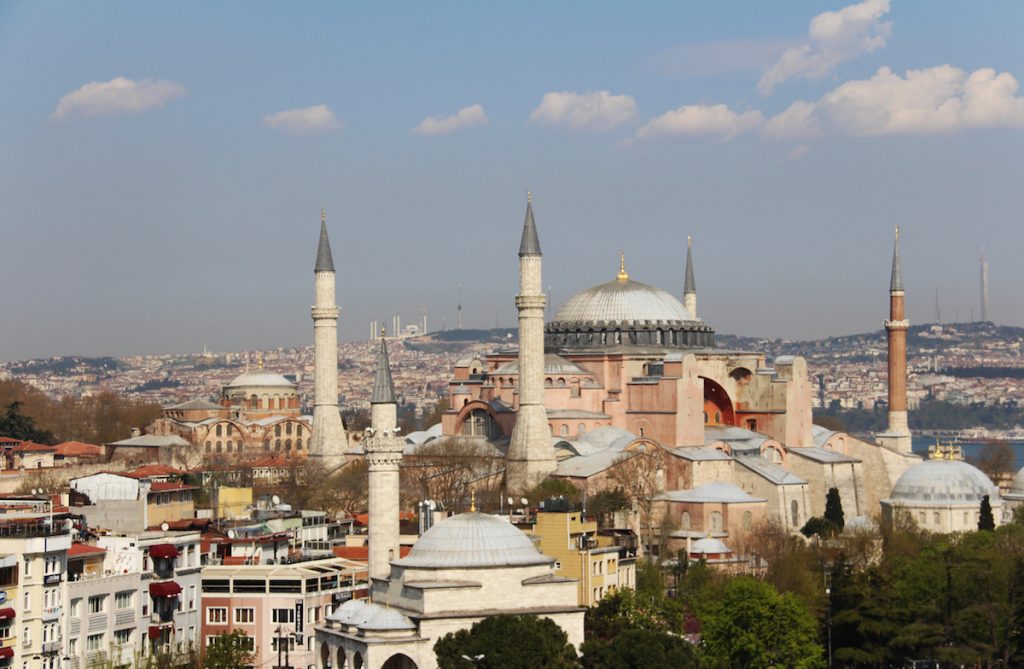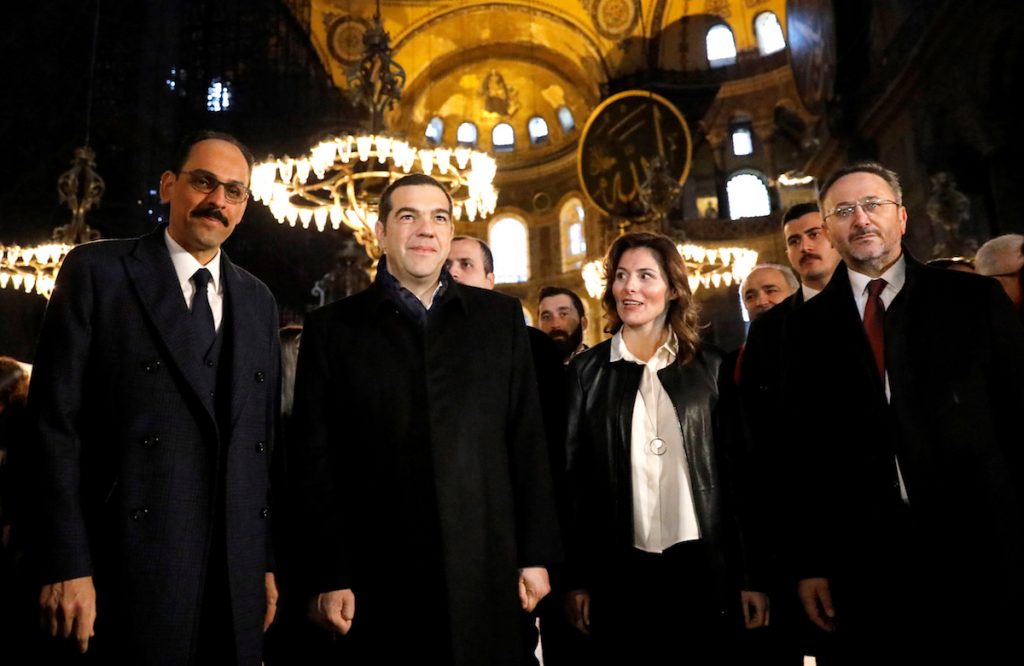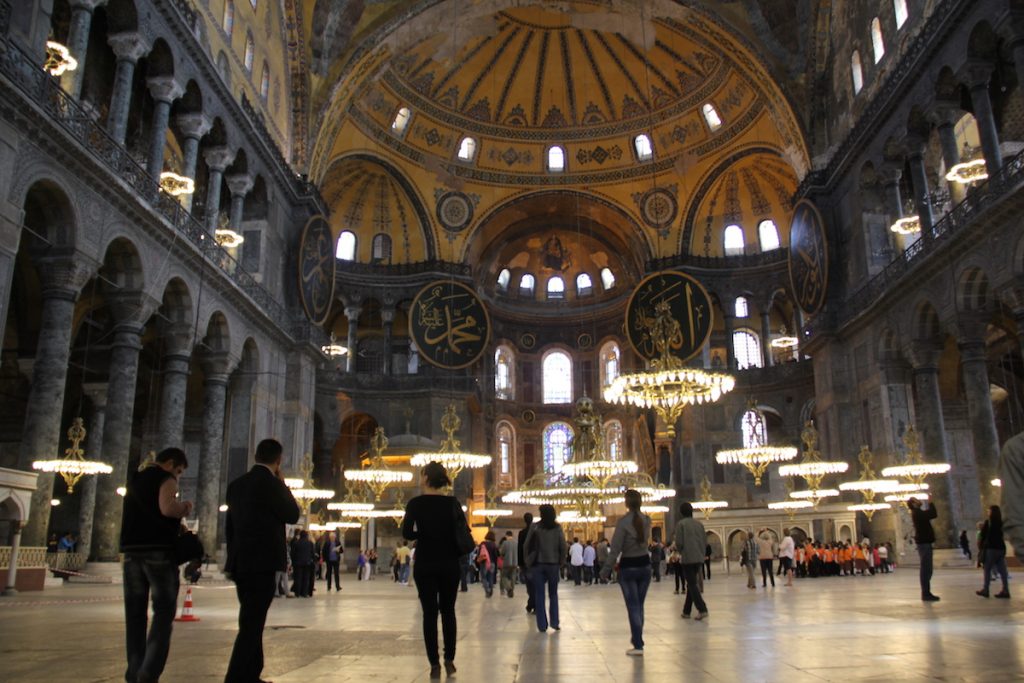Will the Hagia Sophia once again become a mosque?

Tensions are rising between Turkey and Greece over the possible conversion of Istanbul’s museum and the famous historical monument, the Hagia Sophia, into a mosque.
The issue of returning the monument’s status as a mosque occasionally appears on the agenda in Turkey, but this time, President Recep Tayyip Erdogan himself spoke out in favor of the idea. The final decision on this issue will be made on July 2.
“Reading the Qur’an and performing prayers is permitted in the Hagia Sophia”
In May 2020, during his speech on the 567th anniversary of the conquest of Istanbul, Erdogan announced that the Qur’an would be read in the Hagia Sophia.
Indeed, as part of the celebration, verses from the Islamic holy book were read within the walls of the Byzantine monument for the first time in many years.
This led to protests in Greece.
“Reading passages from the Qur’an in the Hagia Sophia Cathedral, a UNESCO World Heritage Site that has been functioning as a museum since 1935, is not just unacceptable, but also offends the religious feelings of Christians around the world,” announced the Greek Ministry of Foreign Affairs.
In Athens, they considered this decision by the Turkish authorities an “insult to the world community” and recalled that Turkey is responsible for respecting the agreement on the protection of world culture and natural heritage.
In 1453, after the conquest of Constantinople, Sultan Mehmed the Second Conqueror converted the main Orthodox cathedral of the city, Saint Sophia Cathedral, into a mosque, which was called Hagia Sophia. Until 1931, the Hagia Sophia functioned as a mosque. In 1934, the Turkish authorities converted the monument into a museum, which opened to visitors in 1935.
In response to accusations from Greece, Erdogan said that “in the Hagia Sophia, it is permitted to read the Qur’an, as well as to perform prayers. The decision on this matter can be made exclusively by our people.”
Following this statement, the Turkish president instructed the government to look into the issue of changing the status of the Hagia Sophia.
“The Hagia Sophia may continue to accept tourists as a mosque. Like the Sultan Ahmed Mosque,” said Erdogan.
One organization, two lawsuits
Erdogan’s statement was especially relevant in light of the fact that the court soon plans to announce a decision which should finally determine the status of the most popular cultural site and world-famous tourist attraction in Turkey.
The supreme court of Turkey, the Council of State, is considering a lawsuit opened by the Organization for the Maintenance of Foundations, Historical Works and the Environment, which is demanding the annulment of the 1934 decision of the Cabinet of Ministers and the re-conversion of the Hagia Sophia from the museum into a mosque.
This is the second time that the organization has appealed to the court.
The first lawsuit was filed in 2005. But at that time, the Council of State rejected the lawsuit, justifying its decision by the fact that using the Hagia Sophia as a museum does not contradict the law. The organization also appealed to the Constitutional Court, but the decision was upheld.
Istanbul’s main monument only recently became the subject of disagreement between Greece and Turkey.

The next time the organization filed the same lawsuit with the Council of State in 2016.
In this case, the organization substantiated its claim by the fact that the alleged signature of Atatürk on the Cabinet of Ministers document amending the status of the Hagia Sophia to become a museum was faked.
After a long time spent reviewing the case, it was announced that a decision would be made on July 2, 2020.
One lawyer’s opinion
Lawyer Yılmaz Yazıcıoglu says that the Council of State is authorized to decide on the annulment of the Hagia Sophia’s museum status and open it for worship.
“By the decision of the Cabinet of Ministers of November 24, 1934, the Hagia Sophia became a museum. Administrative decisions can always be revoked,” he said.
At the same time, Yazıcıoglu believes that we cannot yet rule out the possibility that the claim will once again be rejected. In order to revoke an administrative decision, it is necessary to prove its illegality.
But the decision of the Cabinet of Ministers, adopted 86 years ago, is consistent with the law. However, the lawyer is also sure that the Hagia Sophia can be open for worship and without annulling its status as a museum, and that this also does not contradict the law.

Commentary from social media
The possibility of depriving the Hagia Sophia of its museum status and turning it into a mosque is being actively discussed in social networks. Most argue in favor of the decision, but there are also those who oppose it.
“As it turns out, Greece likes the Hagia Sophia’s status as a museum, and this is why we must keep it open as a museum. But Greece also likes the poor state of our economy. Should we not do the exact opposite (of what Greece demands)? ” asks a Twitter user.
“The Hagia Sophia is an exceptional place. The most emblematic monument of Istanbul. It should remain a museum. Surely, this is what will happen. It’s just that the Islamists, just like a handful of radical nationalists in Greece, are using it as a political tool, and that’s the real issue,” said Twitter user Ozan Avunduk.
Turkish citizens who are ethnic Greeks also joined in on the discussions.
In the words of one of these citizens, in response to the Hagia Sophia’s conversion into a mosque, the Greek government could very well turn Ataturk’s house-museum in the Greek city of Thessaloniki into a “museum of Greek genocide,” and that this is something to keep in mind.


















